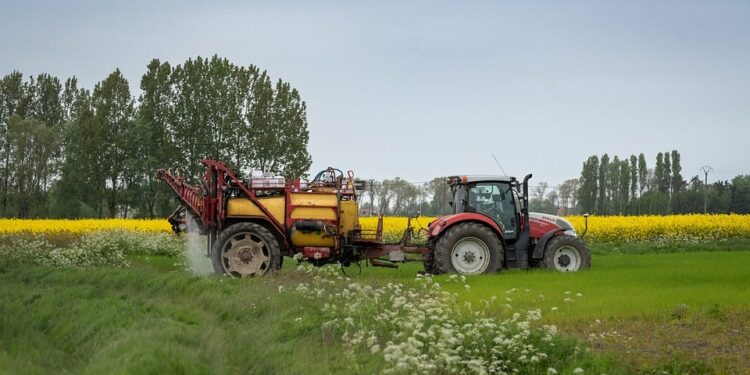Agriculture is an age-old industry that has undergone numerous technological revolutions over the years. From the invention of the plow to the development of hybrid seeds, technology has played a crucial role in enhancing productivity and efficiency in farming. In recent years, one of the most transformative technologies to impact agriculture is artificial intelligence (AI). AI in agriculture has the potential to revolutionize the way food is produced, improving efficiency, sustainability, and profitability for farmers around the world.
AI technologies are increasingly being used in agriculture to optimize various processes, from crop monitoring and pest detection to automated machinery and predictive analytics. These applications have the potential to transform the industry, making farming more efficient, sustainable, and profitable. In this article, we will explore some of the most transformative applications of AI in agriculture and the potential benefits they offer.
One of the key applications of AI in agriculture is crop monitoring. Traditional methods of monitoring crops, such as visual inspection, can be time-consuming and labor-intensive. AI technologies can automate this process by analyzing data from drones, satellites, and sensors to monitor crop health, growth, and yield in real-time. This allows farmers to quickly identify issues such as pest infestations, nutrient deficiencies, and irrigation problems, enabling them to take corrective action before significant damage occurs.
AI-powered pest detection is another transformative application of AI in agriculture. Pests can cause significant damage to crops, leading to reduced yields and increased costs for farmers. AI technologies can analyze images and sensor data to identify pests and diseases in crops, enabling farmers to take targeted action to control outbreaks. This can help reduce the need for harmful pesticides and improve the overall health and productivity of crops.
Automated machinery is another key application of AI in agriculture. Autonomous tractors, drones, and robotic harvesters are increasingly being used in farming operations to improve efficiency and reduce labor costs. These machines can perform tasks such as planting, spraying, and harvesting with precision and accuracy, reducing the risk of human error and increasing productivity. Using AI-powered machinery can also help farmers save time and resources, allowing them to focus on other aspects of their operation.
Predictive analytics is a powerful application of AI in agriculture that can help farmers make informed decisions based on data and insights. By analyzing historical data, weather patterns, soil conditions, and other factors, AI algorithms can predict future outcomes such as crop yields, market prices, and weather events. This can help farmers optimize their planting schedules, adjust their cultivation practices, and make strategic decisions to maximize profits and reduce risks.
AI technologies are also being used in precision agriculture to optimize inputs such as water, fertilizer, and pesticides. By analyzing data from sensors, drones, and satellites, AI algorithms can help farmers determine the optimal amount and timing of inputs to maximize crop yields while minimizing waste and environmental impact. This can help reduce costs, improve sustainability, and increase profitability for farmers.
In addition to these applications, AI is also being used in agriculture to improve supply chain management, crop insurance, and farm management. By analyzing data from various sources such as market trends, weather forecasts, and consumer preferences, AI algorithms can help farmers make informed decisions about when to plant and harvest crops, how to price their products, and how to manage risks such as droughts and floods. This can help farmers improve their overall efficiency and competitiveness in the market.
Overall, AI technologies have the potential to revolutionize agriculture by making farming more efficient, sustainable, and profitable. By automating processes, optimizing inputs, and providing valuable insights, AI can help farmers improve their productivity and reduce their environmental footprint. As AI technologies continue to advance, we can expect to see even greater innovations in agriculture that will benefit farmers, consumers, and the environment.













